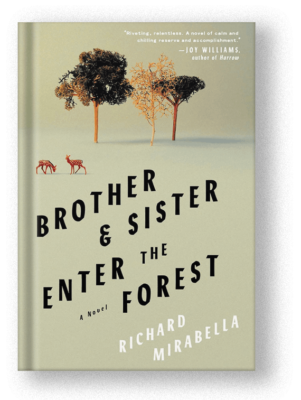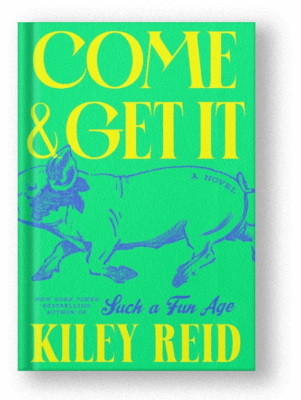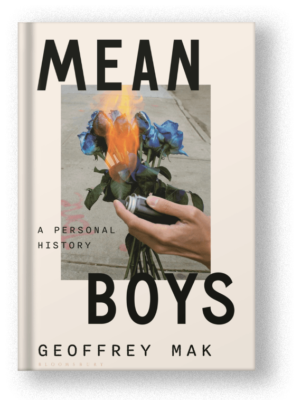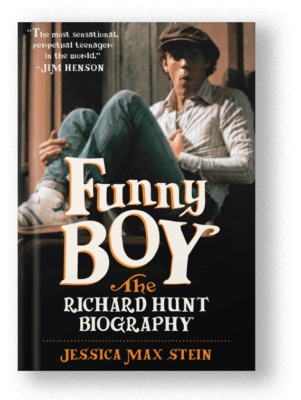Dive into the world of bullying with Mean Boys by Geoffrey Mak and celebrate the life of puppeteer Richard Hunt in Funny Boy by Jessica Max Stein. These captivating reads shed light on important issues & inspiring individuals!
No contemporary fiction writer is probing the complexities of class and race in America more accessibly and entertainingly than Kiley Reid. Her Booker Prize-longlisted 2019 debut, Such a Fun Age, was a suspenseful, satisfyingly soapy tale of a Black college graduate working as the nanny for a white family in Philadelphia. Her sophomore effort, Come and Get It (Putnam. $29. kileyreid.com) shifts setting to the rural southern campus of the University of Arkansas, where Agatha, a writer separated from her wife, takes a guest professor position. She quickly becomes enmeshed with a group of students of widely varying means who have been tossed together in the social experiment that is dormitory life. Seeking material for her next book, Agatha pays one student, Millie, a residential advisor, to let her eavesdrop on the others through a bedroom wall. She soon begins to publish thinly veiled versions of the surreptitiously recorded dorm room conversations in a major magazine. Compounding the risk of her selfish, self-endangering behavior, Agatha, initiates a sexual affair with Millie. (That Agatha is white and her estranged spouse and Millie are Black, adds an unsettling psychological echo to the proceedings). Less tightly plotted than Reid’s debut, Come and Get It is more expansive in focus, taking time to delve into the backstories of the young women Agatha spies on as well as additional characters, including a gay male student. While the story’s ending is less dramatic than one might hope for, the book as a whole offers plenty of juicy incidents along with keen sociological insights. Reid makes it clear that there’s a major overlap in the Venn diagram of Mean Girls and well-meaning girls.Mean Boys (Bloomsbury. $27.99. geoffreymak.com) is the hard-hitting debut book by queer Chinese American writer Geoffrey Mak, whose vivid, impressionistic writing has previously been published in The Nation, Artforum, and Interview. Combining searing autobiography with bare-knuckled cultural criticism, Mak, whose father was an evangelical minister, examines the near omnipresence of toxic masculinity in contemporary culture. He unpacks bro-ish bad behavior beyond its expected realms (church, ports, corporate life) finding it insinuated in superficially more accepting arenas: the art world, the fashion scene, gay sex and, most powerfully, within his own self-perception. Mak’s interweaving of anecdotes and analysis is engagingly messy throughout, but his prose sharpens and soars when he focuses on his expatriate life in Berlin, circa 2010: “…a lost generation who had entered an evaporated job market after the 2008 financial crisis,” he writes. “We were a new wave of downwardly mobile burnouts…at twenty-five, all I wanted were ‘new experiences,’ which can feel like purpose to a twenty-five-year-old.” Mak’s half-giddy, half guilty descriptions of night clubs, drug binges, and gallery openings sparkle and cut like broken glass.
Photographer Jeffrey Milstein gives us a bird’s eye view of the British capital in London From The Air (Rizzoli. $27.50. jeffreymilstein.com), an elegant, eye-popping collection of images that provide rare perspectives of the city on the Thames. In 2000, after a successful career in architecture, New York-based Milstein shifted his focus to photography at age 56. A lifelong aviation buff who earned his pilot’s license at age 17, Milstein’s first major body of work featured aircraft shot from below as they landed and was exhibited at the Smithsonian Air and Space Museum. Soon after, he flipped the direction of his camera and began shooting high resolution images of cityscapes from above. The 228 color pages in this bargain priced coffee table volume offer breathtaking looks at London landmarks old (Big Ben, Buckingham Palace) and new (the cheekily nicknames skyscrapers Gherkin, Scalpel and Shard). But the book’s greatest revelation is the bounty of green space within a city so often thought of as crowded and gray. From the grand corridor of Regent’s Park to the Kensington Palace gardens to the tree-lined residential neighborhoods of Camden borough, Milstein’s photos, taken from a specially permitted low-altitude helicopter, offer gloriously verdant views of London.
The queer community has long claimed Bert and Ernie as gay, but we now have definitive documentation about one of the original Muppeteers. Author Jessica Max Stein’s Funny Boy: The Richard Hunt Biography (Rutgers University Press. $34.95. jessicamaxstein.com), celebrates one of the original five members of Jim Henson’s legendary troupe. Only 18 when he signed on as a Muppeteer in 1969, Hunt originated “The Muppet Show” characters including Scooter, Janice, Beaker and Statler and, during the program’s first season shared the role of Miss Piggy with Frank Oz. Stein captures the creative process behind many Muppet milestones along with plenty of personal anecdotes; while guesting on the show, Rudolf Nureyev, brazenly flirted with Hunt. Max honors Hunt’s long term relationship with painter Nelson Bird and close friendships with collaborators in the entertainment world, including Mark Hamill, who he met fresh off his breakthrough in “Star Wars.” Featured in the first three Muppet movies along with Emmet Otter’s Jug-band Christmas and Fraggle Rock, Hunt continued to work on company projects until his death from AIDS at age 40. Henson once described Hunt as “the most sensational perpetual teenager in the world.”
AIRPLANE READ OF THE MONTH

Brother & Sister Enter the Forest by Richard Mirabella
The debut novel by Richard Mirabella, Brother & Sister Enter the Forest ($27. Catapult. richardmirabellawriter.com) is a dark jewel of a book. Alluringly eerie in tone, it’s the tale of Justin and Willa, adult siblings who are reunited after a period of estrangement. Long-held resentments seep to the surface as the foreground narrative is interwoven with scenes from a harrowing, sex-and violence-fueled period in Justin’s past. The agony of mental illness and the balm of familial love are exquisitely rendered, and in constant tension, in Mirabella’s fable-like telling. Both brother and sister have caring boyfriends at points in the story, but it’s their own troubled relationship that dominates their psyches. Evoking two indelible gay novels of the 1990s, Scott Heim’s Mysterious Skin and Dale Peck’s Now Its Time to Say Goodbye, Mirabella’s prose is spare but evocatively detailed, and suffused with a sense of the uncanny.







